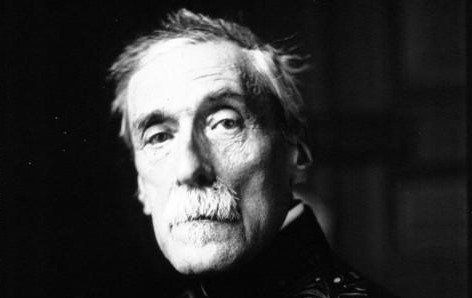The French philosopher who started philosophy with the natural sciences: Who is Emile Boutroux?
The influence of Boutroux, both during his lifetime and after his death, spread to a wide area, enabling new views on the law of necessity, especially in natural sciences.

(1845-1921) French philosopher. He defended the view that contingency is valid in the laws of nature. Born in Montrougeu, died in Paris. He completed his secondary education at the IV Henri High School, entered the Ecole Normale Supérieure in 1865, went to Germany for two years, and studied at Heidelberg University, especially following the lectures of the famous thinker of the era, E Zeller. After returning to France, he taught philosophy at the universities of Montpellier, Nancy, and Sorbonne for a while. In 1902 he was appointed director of the Thiers Foundation.
Étienne Émile Marie Boutroux (28 July 1845 – 22 November 1921) was an eminent 19th-century French philosopher of science and religion, and a historian of philosophy.
Boutroux began philosophy by studying the natural sciences, particularly the study of astronomy and physics that developed with Copernicus. He worked first on Greek-Roman philosophy, and later on Christian thought. He argued that in order to give philosophy a scientific character, it is necessary to start with the natural sciences based on experimentation and observation. For this reason, he won the title of "doctor" with his work De Contingence des lois de la natüre (On the Contingency of the Laws of Nature) which he wrote in 1874.
After that, he concentrated all his work on the solution of common problems between natural sciences and philosophy. He thinks that the method of thinking, which is based on experiment and criticism rather than theory, is insufficient to reach certain information because prejudices can be misleading and because the old philosophy and physics only look at the events from the visible side. Starting from this argument, the main problem Boutroux seeks to solve is whether the laws of nature carry a definite, universally valid necessity. According to his view, which was clearly influenced by Hume, there are some laws in nature, these are related to events, the objects that nature contains. However, it cannot be claimed that these laws contain an immutable obligation. The argument that there is a universally valid necessity in the laws of nature arose from misinterpretations of mechanisms. Contingency, not necessity, is dominant in nature. The theory that the mechanism put forward by looking at the appearance of events led to mistakes on the one hand and the assumption of the existence of a universal destiny on the other.
According to Boutroux, in order to arrive at clear and reliable information, the philosophical and scientific products that have been revealed in previous periods must be examined in detail and their inconsistent aspects must be brought to light. Therefore, it is useful to start with the method of criticism. Criticism should be continued until the foundations on which an opinion is based and the sources from which it feeds are found. Since both science and philosophy did not apply such a method, they were insufficient to grasp the truth. This inadequacy arose not from the complexity of the events, but from the inconsistency of the applied method. All events originate from natural objects. Objects have an inner and an outer face, sides perceived by the senses. The view that laws are necessary in the nature made up of these objects originated from the external face perceived by the senses. However, the reality of objects is in their invisible inner surface, laws are devoid of reflecting this situation.
According to Boutroux's theory, change is fundamental in nature, continuity is its result. Since change is a process, the law of causality originating from perceptions based on the external faces of objects is also an abstract concept. There are events in nature, there is no such thing as causality. An experiment, which shows which elements are under the influence and reaction of a whole, cannot report the existence of a legal obligation in nature. A law that is claimed to have general validity based on individual experimental data and described as necessary cannot go beyond being an abstract concept. The laws of nature have nothing to do with nature as a whole, they are the results of individual events. There is a cause-effect connection between events, but contingency and progress are above this connection, it is fundamental.
Contingency is dominant in the natural sciences, especially those based on experimentation and observation, such as physics, chemistry, biology, and mechanics. Previously, the law of necessity which these sciences advanced by looking at individual events was only an abstract concept. Contingency is the only generally valid principle in laws such as falling and attraction, which are thought to be related to necessity as a basic principle. All living beings in nature are in the process of evolution. This process is a development according to certain stages.
The beginning of evolution is the lowest stage, from which step by step the upper stages are reached. Each stage represents a developmental stage. While going from the lowest stage to the upper stage, a combination takes place according to the natural structure of the living thing. This combination is progressive. Compositions cannot be reduced to each other.
The influence of Boutroux, both during his lifetime and after his death, spread to a wide area, enabling new views on the law of necessity, especially in natural sciences.
